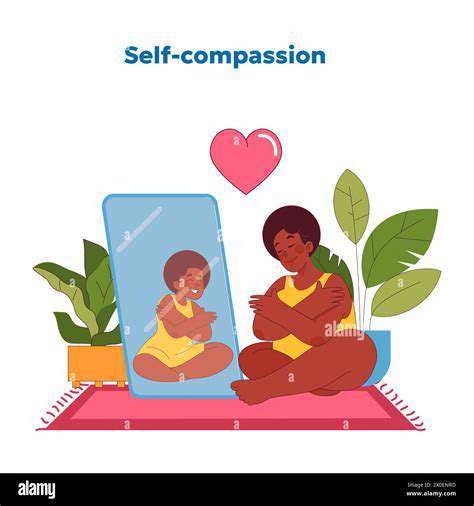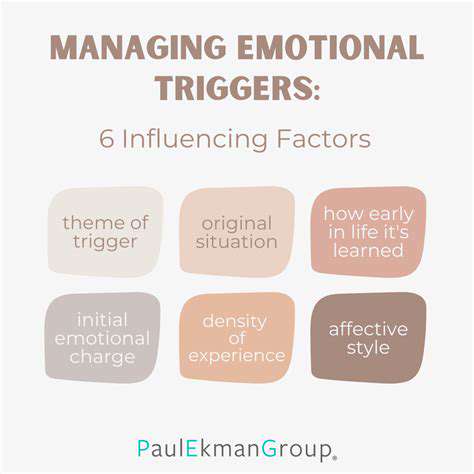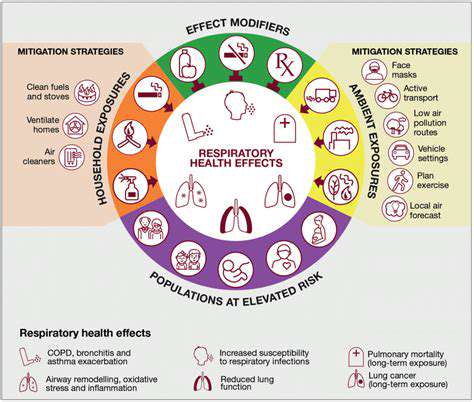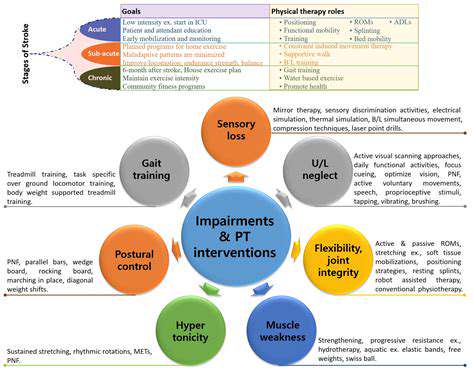Building Resilience While Living with Migraines
Recognizing the Impact of Migraine on Daily Life

Understanding Migraine Triggers
For those who experience migraines, identifying what sets off these debilitating episodes can be life-changing. Recognizing these triggers empowers people to take control of their health by avoiding situations that might spark an attack. This proactive stance often leads to fewer and less severe migraine episodes, dramatically improving day-to-day living. Potential triggers vary widely, from emotional stress and sleep deprivation to specific foods, environmental stimuli, and even shifts in weather conditions. Documenting personal sensitivities becomes the foundation for creating customized prevention plans.
What we eat plays a surprisingly large role in migraine occurrences. Items like aged cheeses, processed deli meats, and even chocolate frequently appear on lists of problematic foods. Environmental elements such as overpowering scents, glaring lights, and sudden loud noises can also serve as powerful catalysts, affecting people differently. Keeping a detailed journal of these factors proves invaluable for crafting personal migraine management approaches.
The Role of Stress and Lifestyle
Stress emerges as a nearly universal catalyst for migraine sufferers. Ongoing tension, whether from professional demands, personal relationships, or other life pressures, substantially increases the likelihood of migraine attacks. Adopting stress-reduction practices like consistent physical activity, meditation techniques, and maintaining proper sleep hygiene can dramatically lessen stress's influence on migraine occurrence.
Daily habits surrounding sleep, nutrition, and hydration all contribute to migraine vulnerability. Chronic sleep deprivation and irregular routines disrupt the body's natural cycles, raising the chances of migraine episodes. Eating balanced meals filled with fresh produce, whole grains, and lean proteins supports general health while helping the body better handle potential migraine triggers.
Genetic Predisposition and Migraine
Our genetic makeup significantly affects migraine susceptibility. When migraines run in families, it often indicates inherited tendencies toward the condition. Understanding this genetic component helps healthcare providers develop more targeted prevention and treatment approaches, making it a crucial consideration for proactive health management.
Diagnostic Challenges and Accuracy
Proper diagnosis forms the cornerstone of effective migraine care. Because migraines can resemble other neurological conditions, accurate identification requires careful evaluation by medical professionals. This process typically involves comprehensive medical histories, physical examinations, and detailed discussions about symptoms, frequency, and potential triggers to distinguish migraines from other possible conditions.
Impact on Daily Functioning
The disruption caused by migraine attacks can be profound. Debilitating pain accompanied by nausea and extreme sensitivity to light and sound often leaves people incapable of performing basic tasks. This impairment extends across all life domains - professional responsibilities, academic performance, social engagements, and personal care routines. Grasping migraines' far-reaching effects proves essential for developing practical coping methods and establishing necessary support networks.
Treatment Options and Management
Today's migraine sufferers have access to diverse treatment approaches ranging from basic pain relievers to specialized prescription medications and complementary therapies like biofeedback and acupuncture. Selecting the right treatment combination requires careful consideration of individual circumstances, including attack severity, frequency, and personal preferences. Effective migraine management becomes vital for preserving quality of life and maintaining productivity.
Seeking Professional Support
Consulting healthcare professionals remains essential for anyone dealing with migraine symptoms. Medical experts can provide accurate diagnoses, create personalized treatment plans, and offer guidance on beneficial lifestyle adjustments. This professional involvement often leads to significantly better migraine control and overall health improvement. A comprehensive, multifaceted approach typically yields the most sustainable results.

Harnessing the Power of Mindfulness and Stress Reduction
Understanding Mindfulness
Mindfulness fundamentally involves maintaining moment-to-moment awareness of our thoughts, feelings, and surroundings without judgment. This practice encourages observing our internal experiences as they unfold rather than becoming entangled in them. Various techniques like meditation, body awareness exercises, and focused breathing help cultivate this quality of attention. Through regular mindfulness practice, we develop enhanced self-awareness that allows for more thoughtful responses to stress and challenges, ultimately strengthening our resilience.
The essence of mindfulness lies in accepting the present reality without attempting to alter it. This doesn't mean resigning ourselves to difficult emotions, but rather acknowledging them without letting them dictate our reactions. This objective observation creates space between our experiences and our responses, providing valuable perspective that's particularly helpful for stress management and resilience building.
Stress Reduction Techniques
Effective stress management requires personalized approaches that address individual needs. Techniques like controlled breathing, progressive muscle relaxation, and yoga practice powerfully calm the nervous system and reduce stress-related physical responses. Understanding your unique stress patterns enables you to develop proactive strategies that address tension before it escalates. This involves learning to recognize stressors early and respond constructively rather than letting them dominate your mental landscape.
Pinpointing specific stress sources and creating tailored coping methods proves essential for meaningful stress reduction. Solutions might include setting healthy personal boundaries, organizing priorities effectively, or implementing time management systems. By directly confronting stress origins, people can cultivate more supportive environments that minimize stress's impact on overall wellness while enhancing resilience.
Mindfulness and Emotional Regulation
Mindfulness significantly enhances emotional regulation by promoting non-judgmental awareness of our feelings. Rather than ignoring or suppressing difficult emotions, mindfulness encourages observing them with curiosity and acceptance. This process helps uncover the roots and patterns of our emotional responses, leading to greater emotional intelligence and resilience. It's about embracing the full spectrum of human emotions as they occur in the present moment.
Building Resilience Through Practice
Developing resilience isn't a destination but an ongoing journey requiring consistent effort. Like mastering any skill, mindfulness and stress reduction techniques demand regular practice to become integrated into daily life. Persistent application of these methods strengthens our capacity to handle life's challenges and recover from setbacks, making us increasingly resilient when facing difficulties.
Adopting a growth mindset and practicing self-kindness also contribute significantly to resilience. Understanding that obstacles are universal human experiences helps us approach challenges with greater acceptance and perseverance. This compassionate perspective nurtures healthier self-esteem and encourages learning from all experiences, thereby enhancing overall resilience.
The Connection Between Mindfulness and Wellbeing
Mindfulness and stress reduction share profound connections with overall wellness. By cultivating present-moment awareness and effective stress management skills, we establish stronger foundations for emotional balance and psychological health. These benefits often manifest as better sleep, improved concentration, and greater daily tranquility. Mindfulness also helps us appreciate ordinary moments that typically pass unnoticed, deepening our connection with ourselves and our surroundings.
Incorporating these practices into daily routines - through mindful eating, walking meditation, or brief breathing exercises - can transform overall wellbeing. Consistent cultivation of mindfulness and stress management techniques enhances our ability to navigate life's complexities with increased poise and flexibility, ultimately contributing to greater life satisfaction and fulfillment.
Building a Support System and Seeking Professional Guidance
Understanding the Importance of Support
Creating a reliable support network proves invaluable when facing life's challenges and building resilience. Trusted friends, family members, or mentors can offer emotional comfort, practical help, and a sense of community - all critical elements for managing stress and overcoming obstacles. Actively developing and maintaining these relationships represents a vital step toward enhanced resilience and wellbeing.
This support structure serves as an emotional safety net during difficult periods, providing listening ears, comforting presence, or welcome distractions from overwhelming situations. The goal isn't dependence on others, but rather recognizing how strong support systems can soften life's blows and foster more positive perspectives.
Identifying Your Support Network
Begin by assessing your existing support resources. Identify people who can provide emotional backing, practical assistance, or simply attentive listening. Consider family, close friends, coworkers, or community connections. Being clear about your needs and communicating them effectively to trusted individuals makes all the difference.
Don't hesitate to reconnect with people you've lost touch with over time. Renewing old friendships or family ties can strengthen your support web and create fresh opportunities for meaningful connection. Remember that building robust support networks is an evolving process rather than a one-time accomplishment.
Seeking Professional Guidance
When personal challenges feel overwhelming or you find yourself stuck in difficult patterns, professional support can be transformative. Therapists and counselors offer safe, confidential spaces to explore emotions, develop coping strategies, and gain new perspectives. They provide specialized tools for managing stress, anxiety, and other emotional difficulties.
Reaching out for professional help demonstrates strength and proactive self-care rather than weakness. This step can empower you to navigate complex feelings, establish healthy coping methods, and build resilience when facing adversity.
Developing Healthy Coping Mechanisms
Establishing constructive coping strategies is fundamental for stress management and resilience building. Beneficial activities might include regular exercise, mindfulness practices, reflective writing, nature immersion, or creative pursuits. Identifying and incorporating these practices into daily life can profoundly impact overall wellbeing.
Utilizing Resources and Support Groups
Many communities offer valuable resources and support groups for various life challenges. These groups provide platforms to connect with others facing similar situations, share experiences, and learn alternative coping strategies. Investigate local support options related to your specific needs, whether concerning mental health, relationship issues, or other difficulties. Connecting with understanding individuals fosters community and shared experience.
Recognizing Your Strengths and Limitations
Building resilience involves honest self-assessment of both capabilities and areas needing support. Understanding your personal strengths while acknowledging where you might need assistance is crucial. This self-awareness allows you to leverage your abilities while proactively seeking help when necessary - a key component of creating an effective personal support system.
Maintaining a Positive Mindset
Cultivating optimism significantly contributes to resilience development. Actively seeking positive experiences, practicing gratitude, and extending self-compassion profoundly impact wellbeing and challenge navigation. This might involve setting achievable goals, celebrating small successes, and staying present-focused. While maintaining positivity requires continuous effort, it's essential for developing emotional strength and resilience.
Embracing Self-Compassion and Positive Self-Talk

Cultivating Self-Kindness
Self-compassion means extending to ourselves the same warmth and understanding we'd offer a dear friend facing similar struggles. This involves recognizing that imperfection is part of the human experience and responding to our own mistakes with gentle encouragement rather than harsh criticism. Developing self-compassion serves as a powerful resource for navigating life's inevitable challenges, promoting emotional health, and strengthening resilience.
When confronting setbacks or shortcomings, practicing self-kindness involves acknowledging our shared humanity and treating ourselves with the empathy we'd show others. This compassionate approach can dramatically reduce feelings of inadequacy and self-doubt, enabling us to face challenges with renewed confidence and optimism.
Understanding Imperfection
Accepting imperfection represents a crucial milestone in developing self-compassion. As inherently flawed beings, we must recognize that our experiences and actions won't always meet ideal standards. Embracing this truth helps release the unrealistic expectation of perfection, fostering more authentic and accepting self-views.
This acceptance of imperfection doesn't excuse harmful behaviors but rather acknowledges that mistakes and setbacks are natural parts of human growth. It's through these experiences that we develop wisdom, maturity, and ultimately greater resilience.
Recognizing Your Inner Critic
Identifying and understanding your internal critic marks an important step toward greater self-compassion. This inner voice often judges, criticizes, and belittles us, fostering feelings of inadequacy and self-doubt. Becoming aware of these negative patterns represents the first step in diminishing their influence and cultivating more compassionate self-dialogue.
Practicing Self-Care
Self-care encompasses diverse activities that nurture our mental, emotional, and physical health. It involves prioritizing personal needs and engaging in pursuits that bring joy, relaxation, and fulfillment. Making time for exercise, meditation, nature immersion, or creative hobbies can reduce stress and enhance self-worth.
Prioritizing self-care isn't selfish but essential for maintaining overall wellbeing and resilience. By acknowledging our needs and dedicating time to self-care, we establish foundations for greater self-compassion and more satisfying lives.
The Benefits of Self-Compassion
Cultivating self-compassion yields numerous advantages extending far beyond improved self-image. It fosters richer relationships as we interact with others through lenses of greater empathy and understanding. It also enhances resilience, enabling us to recover from setbacks with increased ease and strength.
Self-compassion promotes healthier perspectives on challenges, reducing stress and anxiety. This creates a positive cycle, allowing us to approach life with increased courage, optimism, and profound self-acceptance.









